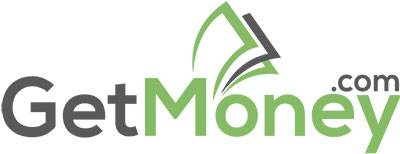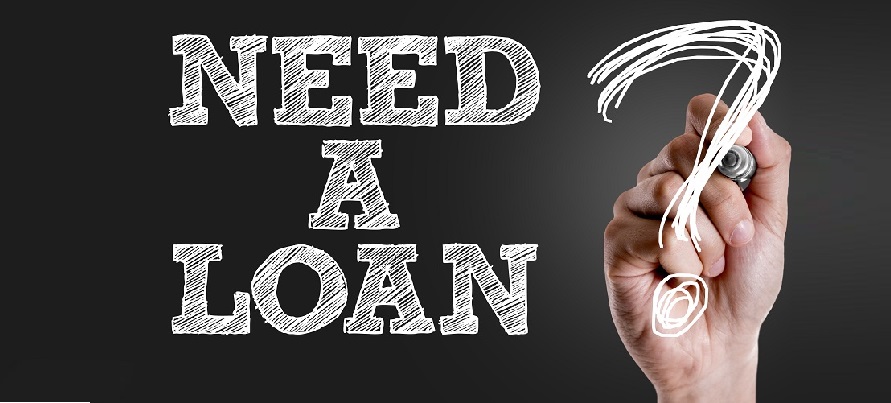1
Request A Loan
No Cost No Obligations
2
Get A Decision
Hassle Free
3
Get Your Money
If Approved
- Simple
- Secure
- Hassle Free
- Competitive Rates
- No Social Security
- No Obligations
Home Loans - Mortgage Refinancing
Lower your rate, Lower your payments
What is mortgage refinancing?
Refinancing is the process of getting a new mortgage to replace an existing mortgage. The proceeds from the new loan will be used to pay-off the existing mortgage and the current mortgage holder’s lien on the title will be replaced by the new mortgagee.
Why refinance a mortgage
Common reasons for refinancing a mortgage are:
- Lowering the existing mortgage interest rate
- Combining first and second mortgages into one loan
- Tapping into home equity to consolidate high-interest debt with a cash-out mortgage
- Changing the terms of the mortgage:
- lowering the mortgage interest rate
- converting an adjustable-rate mortgage into a fixed interest rate mortgage
- Converting a 30 year fixed to a 15 year fixed mortgage or any other amortization terms.
Best mortgage rates online
The best mortgage rate online is the best rate you qualify for.
How to choose a mortgage lender online
Do your due diligence to find a trustworthy lender you are comfortable with. A good place to start is the Better Business Bureau and Google.com. Do a simple search to see if the lender has any negative comments and how long they’ve been in business. If they do have negative comments, focus on their response to the comments. Once you have it down to a few lenders, read the about us page displayed on the website.
What do you need to qualify for a mortgage
Traditional loans and lenders require tax returns for the last 2 years, two pay stubs, good FICO scores (usually above 660) and a good mortgage payment history. However, when refinancing for a lower interest rate and term, the lender will make all efforts to obtain a DU decision that may waive some required credit documentation and the appraisal report.
What are the closing costs for refinancing
The basic closing costs associated with every refinance are:
- Title and escrow fees (some states don’t have escrow): Title and escrow fees are third party fees and lenders don’t have any control over them.
- Appraisal (if required): Lenders don’t have control over the appraisal fee and it has to be done by an independent third party.
- Lender processing fees: All brokers and lenders have a processing fee. It could range anywhere from $500 to $1000 per loan.
- Lender underwriting fees: All lenders have an underwriting fee and it’s not negotiable.
- Credit report: Most lenders and brokers charge a fee for running credit. The credit is checked up front before you are quoted a mortgage interest rate and the charge is disclosed in the good faith estimate, but you don’t pay for it till the end at closing.
- Termite and other reports (if necessary): Based on underwriting and appraisal reports, some borrowers may require a report of sorts before closing. For example, if you live in a region affected by damage after your appraisal was done, the lender will require an addendum stating the house is still in good shape.
- Mortgage points: 1 point equals 1% of the loan amount. For example, 2 points on a $100,000 mortgage is $2000.
What are mortgage points
When refinancing a mortgage you have two options: A. get a mortgage with no points or B. pay points to buy down the rate. Buying down the rate means paying to get a lower interest rate. For example, if you are quoted 5% on a 30 year fixed mortgage, you may be able to pay 1 point (1% of the loan amount) to get 4.625%.
Should you pay mortgage points to refinance a mortgage
You should only pay a point to buy down the rate if you plan on living in the house long-term and the savings from the lower interest rate justifies the cost. In low-interest market conditions, it’s usually smarter to get a no-point mortgage.
Should you pay the closing costs out of pocket
It’s a personal preference and it depends on the mortgage interest rate the lender is offering. For example, if the loan has a 5% interest rate and you can earn 8% by investing the money, you should not pay the closing costs out of pocket. However, if you the rate is 5% and you can only estimate a return of 3% on your cash, paying the closing costs out of pocket could make sense.
Should you get a No Closing Cost mortgage
If you think the interest rates are going to drop or if you are not planning to own the house for more than 7 years, a no closing cost mortgage is a great option.
What is a no closing cost mortgage
A no closing cost mortgage has a slightly higher interest rate and zero costs. Basically, if a loan at 5% has a $2500 closing cost (Title, escrow, appraisal, etc.) a mortgage loan at 5.25% can have $0.00 closing cost. The lender will get compensated in the open market when they sell the loan at a higher interest rate.
How to negotiate for the lowest closing costs
This is a common question among borrowers looking for a new mortgage. Our advice is to call a few lenders and ask them about their lender fees, closing costs, points and other fees to compare.
Are adjustable rate mortgages better than fixed rate mortgages
Continue reading and you will be better equipped to make an informed decision.
Fixed rate mortgages
The interest rate never changes. The most common fixed rate mortgages are fixed for 30, 20 and 15 years. You can pick the number of years the mortgage is amortized over. For example, if you’ve been making mortgage payments for 3 years on a 30 year fixed loan, you can refinance into a 27 year loan. Usually the shorter the amortization period the lower the interest rate. The major benefit of a fixed rate mortgage is the security of fixed payments (principal and interest) for the life of the loan.
Adjustable rate mortgages (ARM)
Or Hybrid ARM loans carry a fixed interest rate for a predetermined period. After the fixed period the loan will convert to an adjustable rate mortgage. Popular adjustable rate mortgages are:
- 3/1 (rate is fixed for the first 3 years)
- 5/1 (rate is fixed for the first 5 years)
- 7/1 (rate is fixed for the first 7 years)
- 10/1 (rate is fixed for the first 10 years)
Adjustable rate mortgages are amortized over a 30 year period. Which means your payments are calculated to pay-off the mortgage in 30 years.
Payments after the fixed period are recalculated at a fully indexed rate. A fully indexed rate is index (usually Treasury Bill or LIBOR) + margin (a predetermined rate). The margin will vary based on a number of factors such as credit score, LTV, property type and etc.
If you have an interest only mortgage, you’ll only have to make interest payments and your loan balance will remain constant.
Important terms for understanding adjustable rate mortgages and calculating potential future costs:
- Initial interest rate is the starting interest rate on an ARM.
- Adjustment period is the time between interest rate adjustments of adjustable rate mortgages. The interest rate resets at the end of this period and the monthly payments will be recalculated.
- Interest rate cap is the limit on how much the interest rate can increase at the end of each adjustment period or over the life of the loan.
- X/Y is the how Hybrid arm loans are referred to. X is the number of years the initial interest rate is fixed for and Y is the interval between adjustments (common terms are 1 for one year and 6 for six months). For example, 5/1 ARM means that the initial interest rate is fixed for five years (or 60 months) and after the 60th payment the interest rate will adjust annually.
- Fully Indexed Rate is the actual interest rate of the loan after the fixed period. Index + Margin = Fully Indexed Rate.
- Margin is added to the index to calculate the actual interest rate. The lower the margin the lower the fully indexed rate.
- Index is a published financial index such as the treasury bills or libor used to periodically adjust the interest rate.
- Start Rate the introductory rate for some adjustable rate loans. The start rate is like a teaser, because the initial interest rate is lower than the actual rate.
- Payment Shock is the industry term for the increase in monthly mortgage payments caused by increasing interest rates.
- Cap is any clause that sets a limitation on the amount and or the frequency of rate and payment changes.
Fixed or adjustable mortgage
In a low interest rate market, homeowners tend to refinance away from an adjustable rate mortgage to a fixed rate mortgage to lock in a low interest rate for years to come. If you are planning to stay in the house for a short period, refinancing with an adjustable rate loan at a lower interest rate is a good option to consider. The benefit of a fixed interest rate mortgage is the security of fixed payments for the duration of the loan. The advantage of an adjustable rate mortgage is the lower monthly payments.
Jumbo and conforming mortgages
Residential mortgages that exceed the $484,350 limit set by Fannie Mae and Freddie Mac are considered jumbo mortgages. Jumbo mortgages are usually priced .25 to .50 percent higher than conforming mortgages.
Both jumbo and conforming loans are offered as fixed and adjustable rate mortgages.
Best Mortgage Refinance Loans 2019
Get your mortgage and new offers reviewed to see if lower interest rates and higher loan amount mortgages are available. This is a no obligation complementary service.
Schedule your Call
A complimentary service
LATEST FROM BLOG
See our latest articles, recent news and local events


